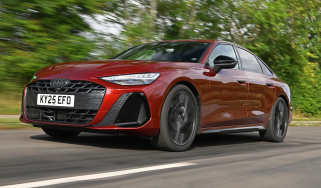New Audi A6 e-hybrid 2025 review: a talented car that’s held back by obvious drawbacks

New Audi A6 e-hybrid 2025 review: a talented car that’s held back by obvious drawbacks
The new Audi A6 e-hybrid has many talents, but is undermined by certain details including its underwhelming interior design and poor materials
Road tests
5 Aug 2025